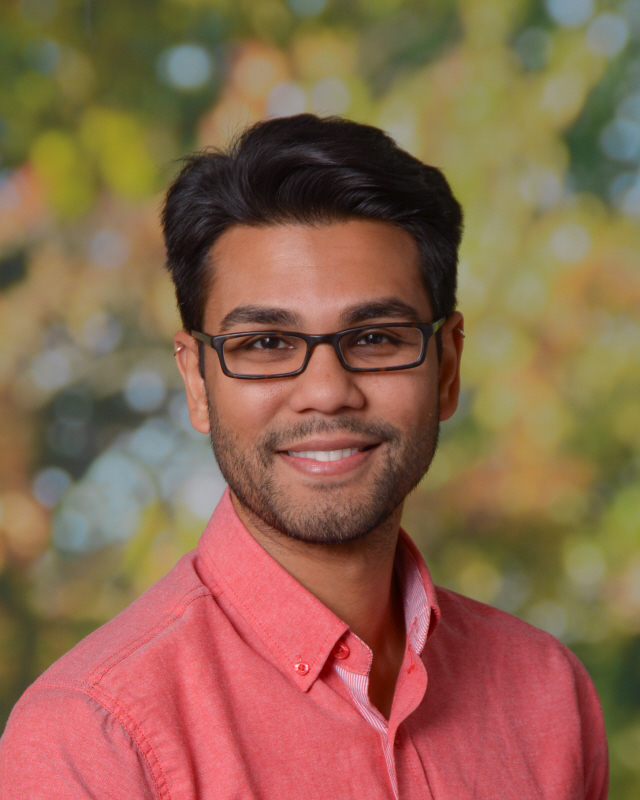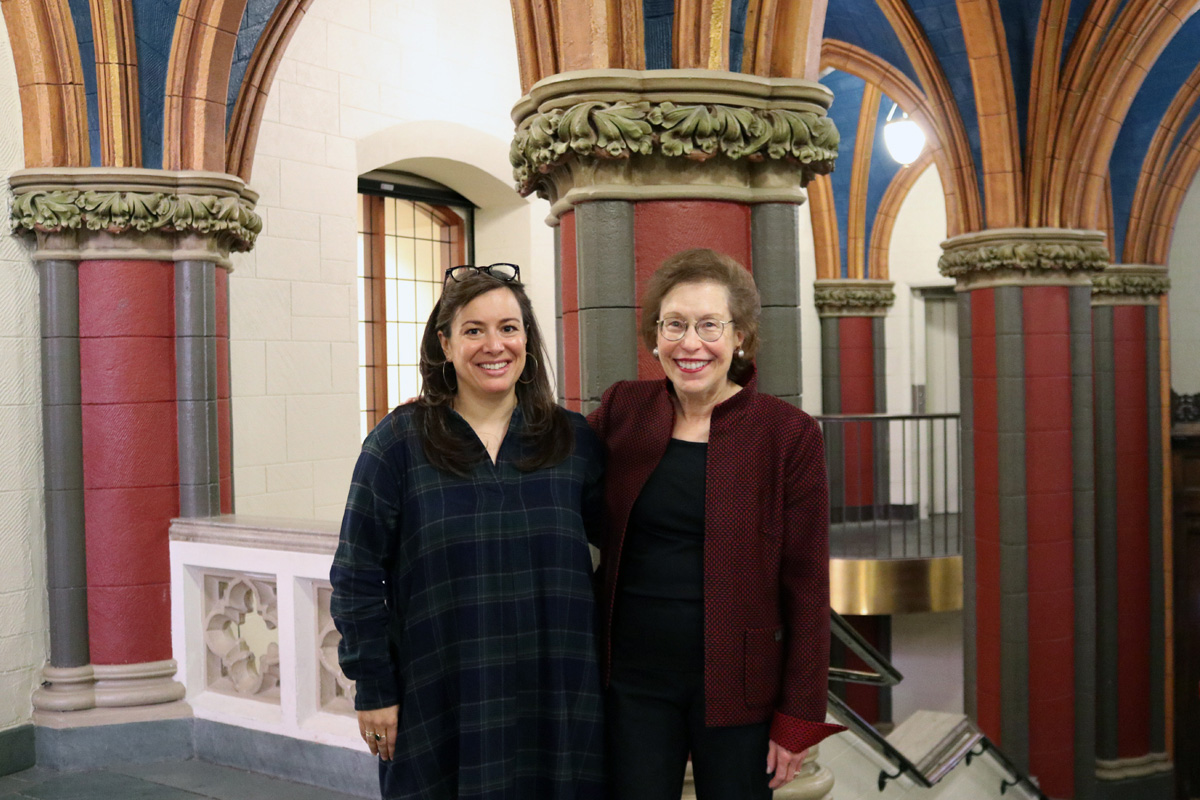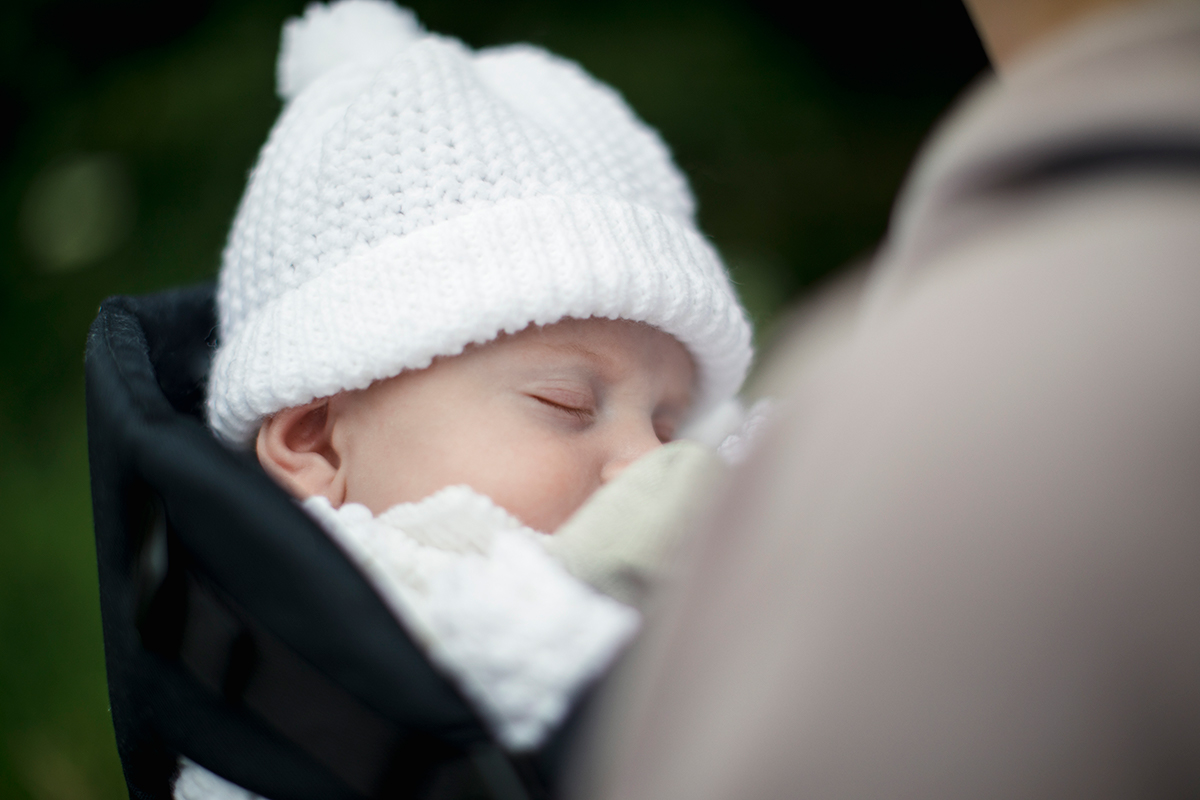Like many of his peers nationwide, science teacher Clement Gomes (Ph.D. ’14) doubles as his school’s sex education teacher. But where others deal primarily with the biological facts, Gomes focuses on “reproductive identity formation” — a new paradigm introduced by Aurélie M. Athan, Research Professor in TC’s Department of Counseling & Clinical Psychology, to frame questions of if, when and how people want to become parents, and how those goals are influenced by their ecology — the families they grew up in, the cultural beliefs they hold and their geographic contexts.
The method is particularly relevant at the independent Churchill School in Manhattan, where Gomes heads the science department, because some 30 percent of the school’s students are adopted. “That adds a whole layer of reproductive identity right there,” says Gomes. “A student may have two dads who had an egg donor. Or three parents because an egg or sperm donor is still part of their life. So, a lot of questions come up.”

DUAL ROLE Clement Gomes (Ph.D. ’14) serves his school as both a science teacher and a sex education instructor. (Photo courtesy of Clement Gomes)
Thanks to an evolving collaboration between Athan and Dr. Mary Edlow (M.A. ’67), a New York City psychoanalyst and Teachers College alumna, a growing number of educators like Clement Gomes are learning about reproductive identity and discussing it with their students.
Three years ago, Edlow approached TC with a vision for a new kind of sex education aimed at the goal of “every child a wanted child.” Through the College’s Office of Development, she met Athan, whose work focused on matrescence — the concept that motherhood (like adolescence and other phases of life) is a distinct period of physical, psychological and emotional development.

MEETING OF THE MINDS Together, Athan (left) and Edlow have fashioned a broad effort that combines research, professional development and educating the public. (Photo: TC Archives)
The result was the Edlow Sex Education Initiative (SEI), a training program for K–12 teachers in New York City who also serve as sex educators in schools. With continuing support from Edlow, SEI, led by Athan and her colleague, Riddhi Sandil, Associate Professor of Practice and Director of TC’s M.Ed. program in Mental Health Counseling, has trained more than 100 of the city’s middle and high school teachers.
This past summer, a new three-year, $610,000 gift from Edlow expanded SEI and brought it together with Athan’s research under an umbrella effort called the Edlow Reproductive Literacy Project, which ultimately aims to establish reproductive identity formation as a central focus in psychology and public health.
In a statement published to TC’s homepage, Edlow explained that — as a result of her studies while at Teachers College, where she served as a student teacher at what was then the College’s Agnes Russell School, and in her subsequent career as social worker, psychoanalyst and teacher of the psychoanalytic theory of early childhood development — she has “become even more aware of the significance of intentional parenting and the importance of helping parents to nurture their children.” Working toward those goals, she said, “will impact on the emotional and physical health of our children and on their ability to reach their full potential in life, especially now, during the challenging times that are facing all of us.”
To that end, the Edlow Reproductive Literacy Project is implementing a three-pronged approach:
Training the next generation of professionals in the workforce. This effort will include continuing improvements to the SEI curriculum, an online training option, the creation of lesson plans for middle and high school teachers, and possibly graduate coursework at TC.
Disseminating findings through major conferences and academic journals in the fields of obstetrics and gynecology, clinical psychology, developmental psychology, public health and sexual health education.
A key step in this goal was Athan’s publication in spring 2020 of her paper “Reproductive Identity: An Emerging Concept” in a special issue of the journal American Psychologist.
“While parenting used to be a given in most societies — an expected, perpetual consequence of heterosexual sex and an unquestioned life goal after the onset of puberty and marriage — it is now for the most part volitional,” Athan writes in the piece. “The fact that a broader range of people can choose to have children regardless of partnership status, postpone it to a later age, or abstain altogether and enjoy sex for its own sake, is indeed remarkable. This burgeoning era of gender, sexual and reproductive self-expression necessitates a new metaphor reflecting the freedom to write one’s own story.”
Creating an informed and reproductively literate public through media and language that are accessible to all, including those without access to higher education. This work will include creation of a website and the launch of a broader public health campaign that could include opinion pieces and interactive resources. The new website will also house a data collection portal for visitors to use a self-assessment tool or contribute narrative accounts of their own reproductive identity development. These personal stories will be analyzed and findings will be used to create a psychological measure of reproductive identity. Sex educators, psychologists and other professionals can eventually use it to help bring awareness to people’s intentions and help them set their own goals around becoming parents.
“It’s so important that we reach the general public with this work through channels that are not locked in the ivory tower,” says Athan. “I’m so grateful to Mary Edlow for her broad vision, her support, and her passionate commitment to this work.”
